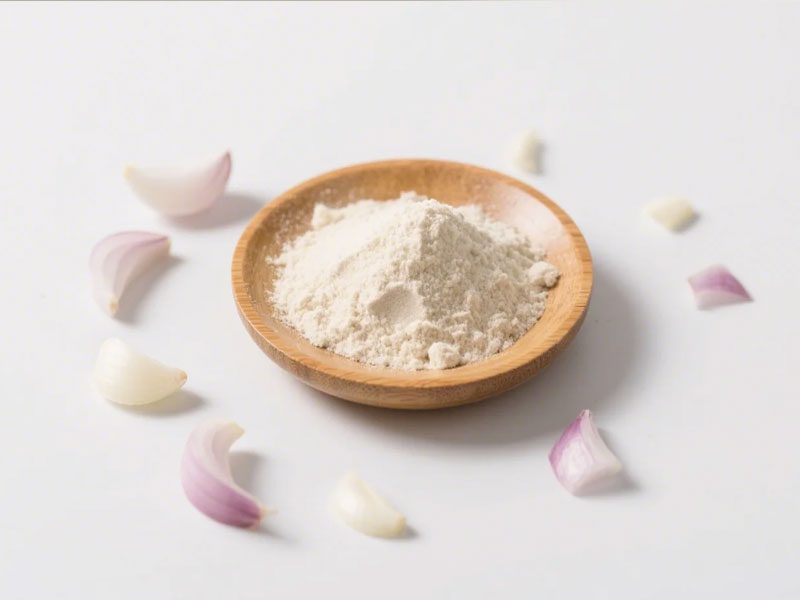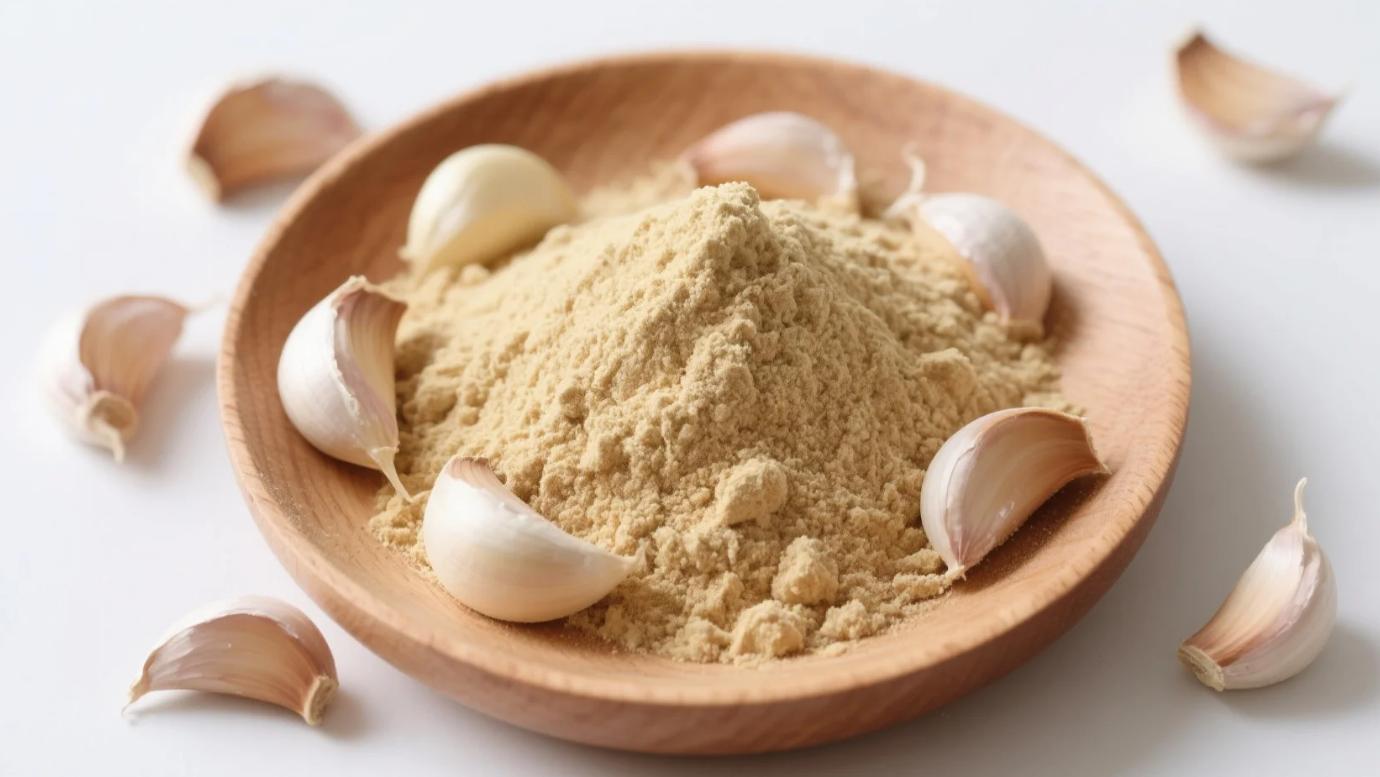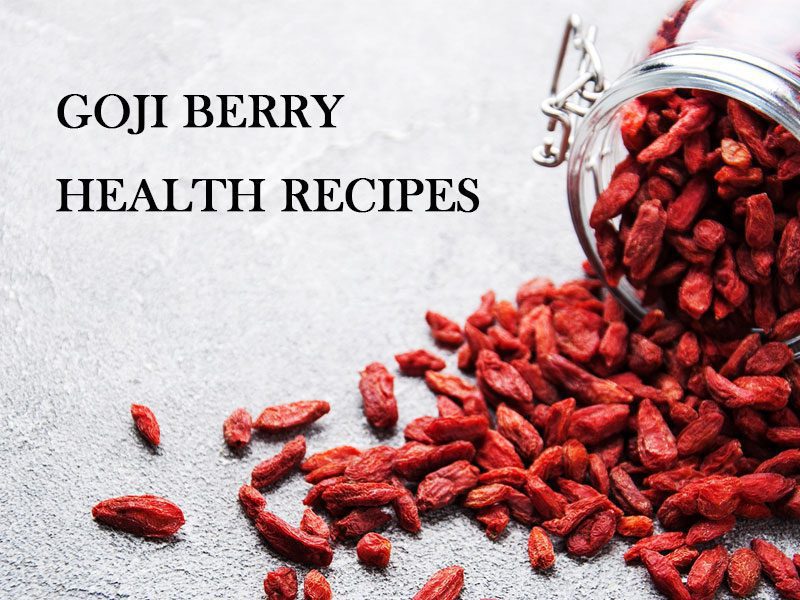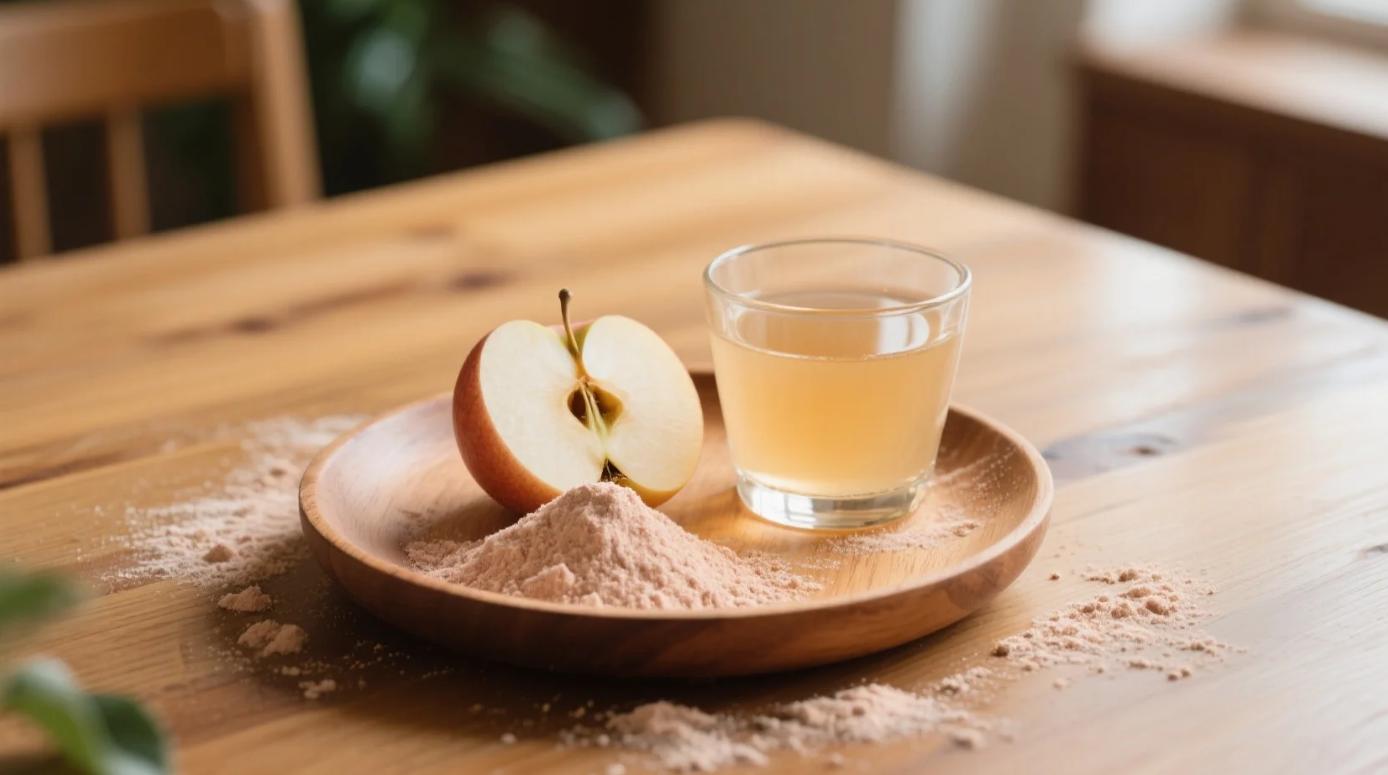Table of Contents
Onion powder—the pantry staple that adds instant depth to soups, marinades, and rubs—is polarizing. While some praise its convenience, others fear it’s a nutrient-dead imposter. But when you choose organic onion powder, the story flips. Let’s peel back the layers on its health perks, hidden risks, and why “organic” is the game-changer your meals (and gut) need.
The Good: 5 Science-Backed Benefits of Organic Onion Powder
1. Antioxidant Powerhouse
- Key Compound: Quercetin (retained in low-heat drying) reduces inflammation and LDL oxidation by 40%.
- Cancer Defense: Studies link regular onion consumption to 15% lower stomach cancer risk.
2. Gut Health Booster
- Prebiotic Fiber: Inulin feeds Bifidobacteria, easing bloating and constipation.
3. Low-Calorie Flavor Bomb
- Swap for Salt: 1 tsp adds savory umami with 0.5g sodium vs. table salt’s 2.3g.
4. Convenient Nutrient Source
- Vitamin C: Organic powder retains 70% of fresh onion’s vitamin C (supports immunity).
5. Shelf-Stable & Zero Waste
- Eco Win: Uses imperfect onions rejected by grocery stores.
The Bad: 4 Onion Powder Pitfalls (and Organic Fixes)
| Issue | Non-Organic Risks | Organic Solution |
|---|---|---|
| Additives | Anti-caking agents like silicon dioxide | No additives, just pure onion |
| Pesticides | Chlorpyrifos (neurotoxic insecticide) | Grown in toxin-free soil |
| Nutrient Loss | High-heat processing destroys quercetin | Air-dried at low temps |
| Sodium Overload | Some brands add hidden salt | Unsalted options available |
Who Should Use (or Avoid) Onion Powder?
- Ideal For:
- Meal Preppers: Sprinkle on roasted veggies or proteins.
- Low-FODMAP Diets: Small amounts are gentler than raw onions.
- Elderly Cooks: No tears, no chopping strain.
- Avoid If:
- GERD/Acid Reflux: Can trigger heartburn in sensitive folks.
- Onion Allergy: Rare but serious (anaphylaxis risk).
Organic vs. Non-Organic Onion Powder: A Nutritional Face-Off
| Factor | Organic Onion Powder | Non-Organic |
|---|---|---|
| Quercetin Content | 45 mg per tsp (lab-tested) | ≤30 mg (degraded by processing) |
| Additives | None | Silicon dioxide, maltodextrin |
| Pesticides | Undetectable | Up to 12 residues (EWG data) |
| Taste | Richer, sweeter, no chemical aftertaste | Metallic or bitter notes |
How to Use Organic Onion Powder Wisely
- Replace Fresh Onions: 1 tsp powder ≈ ½ cup fresh (rehydrate in soups).
- Spice Blends: Mix with garlic powder, paprika, and thyme for rubs.
- Hidden Veg Boost: Add to pasta sauces, smoothies, or dips.
- Preserve Nutrients: Add late in cooking to protect quercetin.
FAQs
Q: Does onion powder cause bloating?
A: Less than raw onions! Fiber is concentrated but easier to dose.
Q: Safe for dogs?
A: No—onions are toxic to pets in any form.
Q: Shelf life?
A: 3–4 years in airtight glass jars (no fridge needed).
Q: Best organic brands?
A: Look for “air-dried” and “non-irradiated” on labels.
Organic onion powder isn’t “good” or “bad”—it’s a tool. Used mindfully, it’s a low-sodium, antioxidant-rich flavor enhancer. But opt for non-organic or overuse it, and you risk pesticides, additives, and wasted nutrition.
Related Products
Organic Onion Powder
Premium organic onion powder retaining fresh flavor and bioactive compounds for versatile…
Organic Garlic Powder
Fine off-white to pale yellow powder; moisture ≤8%; ash ≤3%; strong garlic…



